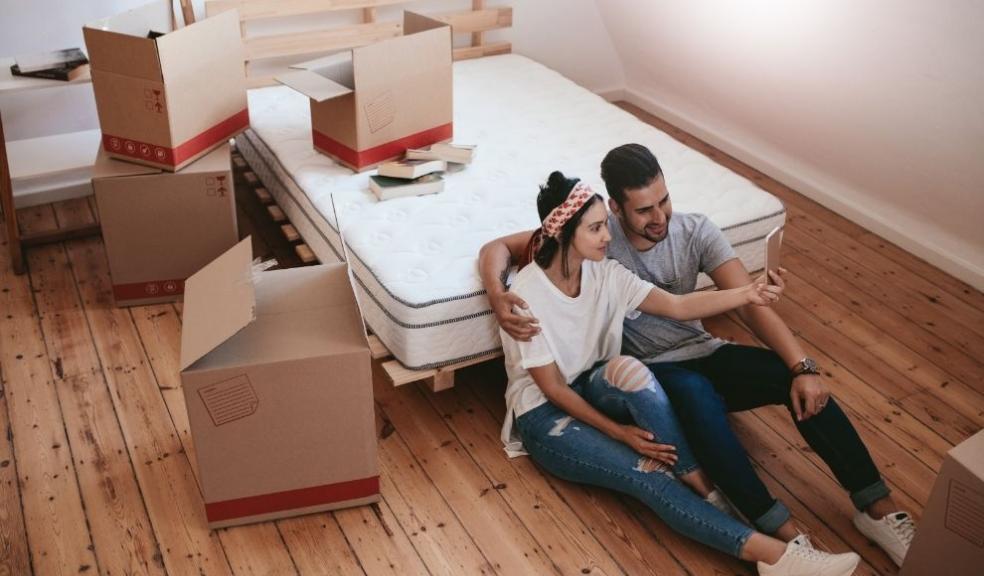
Home-buying plans on hold for 1 in 5 UK adults
- 7 in 10 would-be first-time buyers had to rethink their plans in 2020
- 10.5 million(1) UK people put house-buying plans on hold in 2020
- People anticipate delaying their home-buying plans by 16 months on average
- 2 million people bought a home unexpectedly in 2020, but only 13% due to stamp duty break
Almost one in three UK adults intended to buy a home in 2020, but only a third of people in this group were able to progress their plans, according to a new study from Aviva.
The latest ‘How We Live’ study of 6,000 UK adults reveals, at the start of 2020, 29% of the population intended to purchase a property. However, only one in 10 residents (9%) actually carried out their proposals successfully, while 20% of UK adults – equivalent to around 11 million people(1) – had to halt their plans.
The issue was particularly apparent amongst younger residents, with almost a third of under-25s (29%) and two fifths (39%) of those aged 25-34 seeing their home-buying plans thwarted in 2020.
Correspondingly, abandoned plans were most common among people who intended to buy their first home: seven in 10 (69%) of these first-home hopefuls say they needed to rethink their property-buying plans during 2020.
Unexpected moves
These frustrated buyers are in stark contrast to the 4% of the population - equivalent to around 2 million people(1) - who hadn’t planned to buy a home at the start of the year, but found themselves doing so in 2020. This activity is again skewed towards younger generations, with under-25s twice as likely to have made a move (8%) compared to the percentage across all age groups.
While the stamp duty holiday had some impact on behaviours, with 13% of ‘sudden movers’ saying they moved to take advantage of the break, it was by no means the only motivator.
Aside from stamp duty, more than a quarter (27%) of people who moved home suddenly in 2020 needed to find somewhere bigger or more suitable for home-working arrangements. Lockdown took its toll for 16% of people in this sub-set who needed to move due to a relationship breakdown. More happily, one in 10 in this group started to live with a partner during lockdown and decided to make this arrangement permanent.
People were most likely to make swift purchases in London (7% compared to the national average of 4%) where property prices are traditionally amongst the highest and where the biggest potential stamp duty savings could be made. Residents in the East of England were also more likely to make unexpected house moves at 6% of adults in this region, while people in the North East were least likely at just 2% of residents.
Why were people unable to buy?
Among those who paused their house-buying plans, delays relate mainly to financial concerns and worries about job security. More than a third (36%) of people who had planned to buy a home in 2020 but didn’t, say they were nervous about taking on additional financial commitments at that time and a fifth (21%) report that a member of the household lost their job or was furloughed.
One in seven of these hindered buyers (14%) had intended to move for a new job, but halted their plans because they started working from home.
Amongst older homeowners, there is also a sense that some were struggling to sell their homes, potentially because they tend to be larger and more expensive. This ties in with the view that prospective buyers were reluctant to take on further debt.
One in six (16%) over-55s in this group of hopeful movers say they could not find a buyer for their property, compared to one in 10 across all age groups and just 6% in the 25-34 age category. Full details of reasons for putting plans on hold or buying property unexpectedly in 2020 can be seen in notes to editors.
Not cancelled, just postponed (but for how long?)
In the vast majority (94%) of cases, the people who paused their property-buying plans in 2020, still intend to purchase a home in the future. However, they are prepared for a considerable wait, anticipating their purchase will be delayed by around 16 months on average. One prospective buyer in 10 (9%) expects their plan to be postponed by at least three years, including 3% who envisage a delay of at least five years.
Gareth Hemming, MD Personal Lines, Aviva says: “The stamp duty break has brought welcome opportunities to people who were in a position to make a property purchase and there’s been much talk of the booming housing market.
“However, there’s also a hidden story of people who were hoping to move in 2020 but had to put their plans on hold because of the many uncertainties. The How We Live study suggests there are far more people in this camp than those who have been able to benefit from the stamp duty holiday.
“It remains to be seen how this will play out in the longer term, but we can hope that progress will be made in 2021, bringing new hopes for those who have found themselves in limbo this year.”









